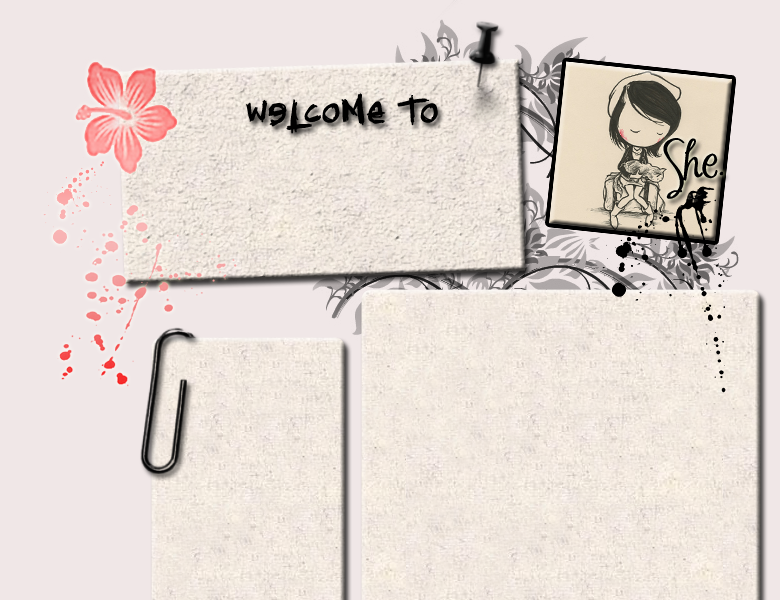
Music, when soft voices die
- Percy Bysshe Shelley-
Music, when soft voices die,
Vibrates in the memory,
Odours, when sweet violets sicken,
Live within the sense they quicken.
Rose leaves, when the rose is dead,
Are heaped for the beloved's bed;
And so thy thoughts, when thou art gone,
Love itself shall slumber on.
Labels: Events, People
 Food for thought? =\Article taken from The Age: --------------------------------------------
Food for thought? =\Article taken from The Age: --------------------------------------------
February 'worst month to go to hospital': studyNICK MILLER
October 14, 2009
February is the worst month to go to hospital, a new study at Melbourne’s Alfred Hospital has found, because the influx of new trainee doctors causes the number of medical errors to rise by 40 per cent.
The authors of the study, published today in the British Medical Journal (BMJ), found the rate of ‘‘central and peripheral nerve injury’’ was more than five times as high in the first month as in the rest of the year, and it was three times as likely that a patient would be given inadequate oxygen.
Patients were twice as likely to vomit in the operating theatre as a result of their anaesthetic, and an ‘‘accidental upper airway obstruction’’ was also twice as likely.
Uncontrolled high or low blood pressure was also more common in the first month.
They said hospitals need to improve orientation for new trainees, and provide more supervision during the first few months of the surgical year.
Known as the ‘‘July phenomenon’’ in the northern hemisphere, the trend for a spike in patient safety problems at the start of the training year has been a topic of hot debate: acknowledged anecdotally, but not supported until now by research.
The international team of researchers behind this study examined the rate of ‘‘undesirable events’’ in patients having an anaesthetic procedure carried out by first- to fifth-year trainees at The Alfred.
Surprisingly, the increase in the rate of errors was almost the same no matter which year the trainee was in.
The effect was strongest in the first month after the switch-over, which happens in late January to early February. However, it did not disappear entirely until June.
‘‘Lack of technical skills is not the only mechanism explaining the (error rate),’’ the paper said. ‘‘New trainees, regardless of their level of training, are unfamiliar with their new working environment — for example, hospital rules, location of medical charts and laboratory results, roles of other healthcare providers.
‘‘As a result, breakdown in communication and poor interprofessional interactions ... may result.’’
This phenomenon can damage the community’s faith in hospitals and doctors, say Professor Julie Johnson from the University of New South Wales and Professor Paul Barach from the Utrecht Medical Centre, in an accomanying editorial in the BMJ.
‘‘The patient caregiving units cannot absorb the effects of new personnel at the beginning of a new academic year,’’ they wrote.
‘‘We can no longer ignore the elephants in the room ... such as the July phenomenon, handovers of clinical care, and the association between excessive working hours, sleep deprivation and increased medical errors.’’
They said hospitals should have a slower uptake of responsibilities in the first week of service, avoiding overnight duties. Trainees could start in a staggered timetable, and when patients had complex needs the trainees should be fully supervised.
Dr Xavier Yu, a surgical trainee who has worked at several Melbourne hospitals over the last eight years, said the errors revealed by the research were ‘‘quite basic’’.
‘‘They were probably thrown by the new environment,’’ he said.
‘‘Not knowing where equipment is will prolong an operation. Or if you are not familiar with what equipment is available at a new hospital, you could be forced to improvise.
‘‘You’re not familiar with hospital protocols, so you might not know who has to sign the forms, which consultant to call, who to call to organise an operating theatre. If you are not clued up, you can get potential errors.’’
He said as a trainee he had wished for a "mentor" — a senior doctor who knew the ropes at that hospital, and who could be turned to for independent advice.
Trainees have supervisors who also assess the trainees’ performance, so trainees were reluctant to admit a lack of knowledge to them.
‘‘Hospitals need to allocate resources for mentors who could walk around and check with trainees that everything is ok,’’ Dr Yu said.
‘‘That would really change a lot of things.’’
AMA Victoria’s president Dr Harry Hemley said there were not enough resources devoted to junior doctor training.
‘‘It’s not just a matter of increasing the time allocated to training – we also need better support systems for junior doctors and greater staff flexibility,’’ he said.
“We need to encourage experienced senior doctors stay in the public system so that they can teach and supervise the next generation of doctors.
“The number of medical graduates entering our public hospital system will have doubled by 2013 – training improvements need to begin now. Tomorrow is too late.” Labels: Medicine/Hospitals/Medics










